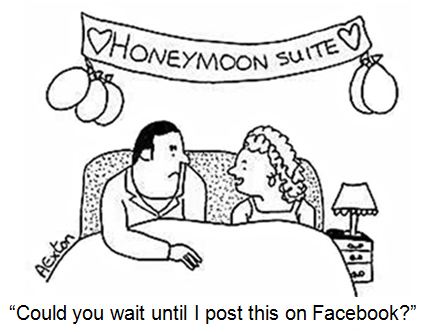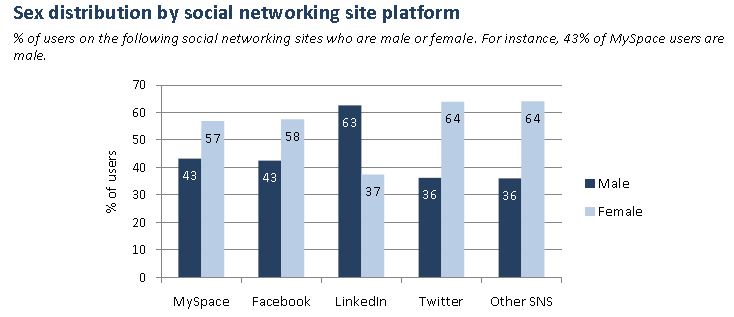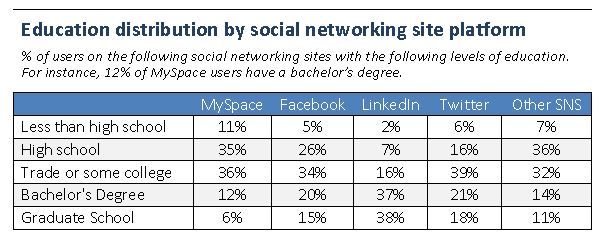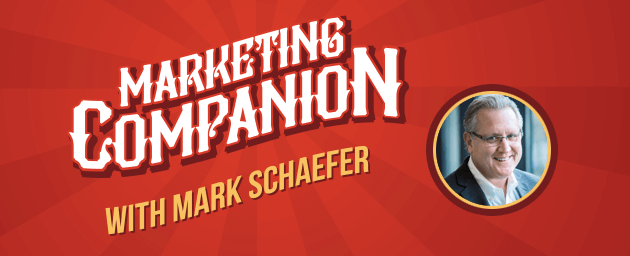Do social media technologies isolate people and promote false relationships? Or are there important benefits associated with being connected to others in this way?
The Pew Research Center’s Internet & American Life Project decided to examine these questions in a survey that explored people’s overall social networks and how use of these technologies is related to trust, tolerance, social support, and community and political engagement.
Among the many interesting findings, Pew reports that the social relationship “boost” received by Facebook users is equivalent to about half the total support that the average American receives as a result of being married.
I always enjoy reading these reports because Pew is one of the few reliably valid sources of research out there! The findings presented here paint a rich and complex picture of the role that digital technology plays in people’s social worlds. Here is a summary:
The number using social networking sites has doubled since 2008 and has gotten older.
In this Pew Internet sample, 79% of American adults said they used the internet and nearly half of adults (47%), or 59% of internet users, say they use at least one site. This is close to double the 26% of adults (34% of Internet users) who used a social site in 2008. Among other things, this means the average age of social media users has shifted from 33 in 2008 to 38 in 2010. Over half of all adult social site users are now over the age of 35.
Facebook dominates the social space in this survey: 92% of social media users are on Facebook; 29% use MySpace, 18% used LinkedIn and 13% use Twitter.
By percentage, Twitter has experienced the most growth. Nearly 60% of Twitter users, 39% of Facebook users, and 36% of LinkedIn users joined within the past year
There is considerable variance in the way people use various social networking sites.
52% of Facebook users and 33% of Twitter users engage with the platform daily, while only 7% of MySpace and 6% of LinkedIn users do the same.
On Facebook on an average day:
- 15% of Facebook users update their own status.
- 22% comment on another’s post or status.
- 20% comment on another user’s photos.
- 26% “Like” another user’s content.
Twitter is for girls, LinkedIn is for boys?
Facebook users are more trusting than others.
Pew asked people if they felt “that most people can be trusted.” They found that the typical Internet user is more than twice as likely as others to feel that people can be trusted. Further, they found that Facebook users are even more likely to be trusting. They found that a Facebook user who uses the site multiple times per day is 43% more likely than other Internet users and more than three times as likely as non-internet users to feel that most people can be trusted.
Facebook users have more close relationships.
The average American has just over two close Facebook confidants (2.16) – that is, people with whom they discuss important matters. This is a modest, but significantly larger number than the average of 1.93 core ties reported in 2008. They found that someone who uses Facebook several times per day averages 9% more close, core ties in their overall social network compared with other Internet users.
Follow the money
Facebook users get more social support than other people.
Pew looked at how much total support, emotional support, companionship, and instrumental aid adults receive. On a scale of 100, the average American scored 75/100 on a scale of total support, 75/100 on emotional support (such as receiving advice), 76/100 in companionship (such as having people to spend time with), and 75/100 in instrumental aid (such as having someone to help if they are sick in bed).
Internet users in general score 3 points higher in total support, 6 points higher in companionship, and 4 points higher in instrumental support. A Facebook user who uses the site multiple times per day tends to score an additional 5 points higher in total support, 5 points higher in emotional support, and 5 points higher in companionship, than internet users of similar demographic characteristics. For Facebook users, the additional boost is equivalent to about half the total support that the average American receives as a result of being married or cohabitating with a partner.
Social media users are much more politically engaged than most people.
The survey was conducted over the November 2010 elections. At that time, 10% of Americans reported that they had attended a political rally, 23% reported that they had tried to convince someone to vote for a specific candidate, and 66% reported that they had or intended to vote. Internet users in general were over twice as likely to attend a political meeting, 78% more likely to try and influence someone’s vote, and 53% more likely to have voted or intended to vote.
Compared with other Internet users, and users of other social platforms, a Facebook user who uses the site multiple times per day was an additional two and half times more likely to attend a political rally, 57% more likely to persuade someone on their vote, and an additional 43% more likely to have said they would vote. Participants in LinkedIn were the most politically active.
The report contains a wealth of detailed information but I hope this summary has been helpful. Any surprises?
 Mark Schaefer is the chief blogger for this site, executive director of Schaefer Marketing Solutions, and the author of several best-selling digital marketing books. He is an acclaimed keynote speaker, college educator, and business consultant. The Marketing Companion podcast is among the top business podcasts in the world. Contact Mark to have him speak to your company event or conference soon.
Mark Schaefer is the chief blogger for this site, executive director of Schaefer Marketing Solutions, and the author of several best-selling digital marketing books. He is an acclaimed keynote speaker, college educator, and business consultant. The Marketing Companion podcast is among the top business podcasts in the world. Contact Mark to have him speak to your company event or conference soon.
I





